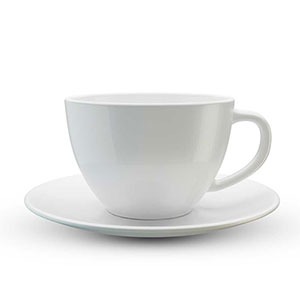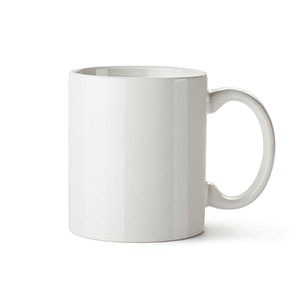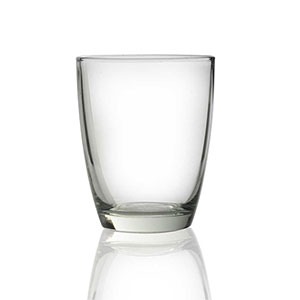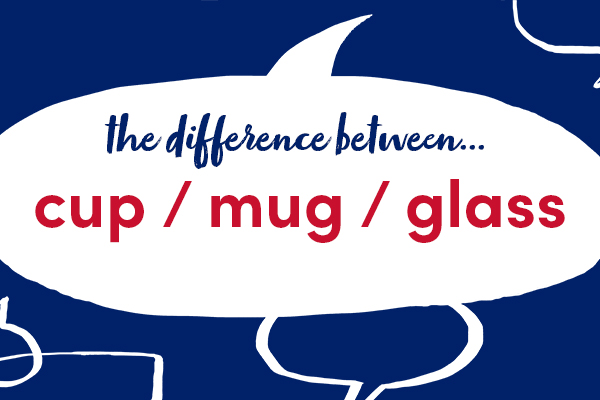This week we are looking at the different containers that you can drink out of: cup, mug and glass
cup

A cup is a small, round container, usually with a handle, from which you drink hot drinks such as tea and coffee. A cup sometimes rests on a saucer.
John put his cup and saucer on the coffee table.
mug

A mug is a large deep cup with straight sides and a handle, used for hot drinks. You don’t rest a mug on a saucer.
He spooned instant coffee into two of the mugs.
glass

A glass is a container made out of glass and used for cold drinks.
I put down my glass and stood up.
Contents and measurements
You can use cup, glass, and mug to talk about the contents of each container.
Do you want a cup of coffee?
He had been drinking mugs of coffee to keep himself awake.
Drink eight glasses of water a day.
A cup is also a unit of measurement used in cooking.
Mix four cups of flour with a pinch of salt.
Find out more in our English Usage article.
This blogpost is based on Collins COBUILD English Usage, written for learners of English. For more examples of English usage points, please visit: https://grammar.collinsdictionary.com/english-usage.
All opinions expressed on this blog are those of the individual writers, and do not necessarily reflect the opinions or policies of Collins, or its parent company, HarperCollins.



